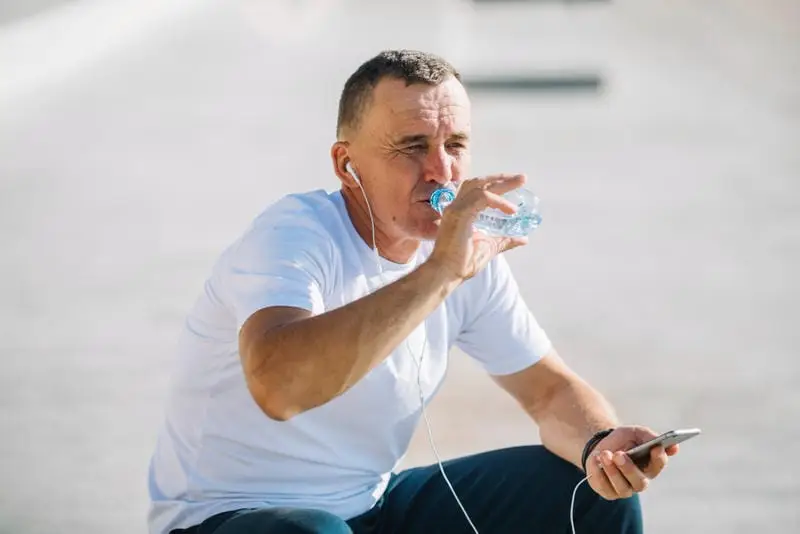- Published on: Jan 29, 2022
- 2 minute read
- By: Second Medic Expert
Understanding Quarantine
What Is Quarantine?
Quarantine is the segregation of people who are infected or suspected of being infected with a particular disease.
It is also the isolation of patients with communicable diseases to prevent their spread. The purpose of quarantine is to protect the public from exposure to potentially deadly diseases. Quarantine is for people who don’t have symptoms but who might have been exposed to the coronavirus. The idea is to keep you from unknowingly infecting others.
Who Needs to Quarantine?
You probably don't need to quarantine yourself, but if you are close contact with someone who has tested positive for coronavirus or just got back from a country where this deadly virus is spreading then it's best that we keep our distance until things calm down.
The reason for this is twofold. First, it's important to prevent the spread of the virus. Secondly, it's important to give those who are an infected time to recover without exposing others to the virus.
There are also a few other groups of people who may need to consider quarantining themselves, such as healthcare workers and those who work with livestock. Anyone who’s been in close contact with a person who has COVID-19 should self-quarantine, even if you’ve had the virus before.
“Close contact” means you did one or more of these things:
- Were within 6 feet of the person for at least 15 minutes
- Cared for the person at home
- Touched, hugged, or kissed them
- Shared eating or drinking utensils with them
- Got droplets on you when they sneezed or coughed
According to the CDC, you’ll need to quarantine:
- If You’re 18 or older and have completed the primary series of the recommended vaccines. But you have not received a recommended booster shot after you became eligible.
- If You received the vaccine over 2 months ago but haven’t received the recommended booster shot.
- If You’re not vaccinated or haven’t yet completed your first full round of vaccines.
You don’t need to quarantine:
- If You’re 18 or older and have received all recommended vaccine doses, including boosters and additional shots recommended for immunocompromised people.
- If You’re 5-17 years old and completed the primary series of COVID-19 vaccines.
- You had COVID-19 within the last 90 days. This should have been confirmed using a viral test.
However, if you were exposed to someone who tested positive, wear a well-fitting mask around others for 10 days after exposure.
How to Quarantine at Home
There are a few simple steps you can take to quarantine at home:
1.Sanitize your environment - Make sure to clean all surfaces and objects in your home that may have meet the disease. You can use a disinfectant or bleach solution to do this.
2.Isolate yourself - You should isolate yourself from other people in your home and avoid contact with anyone who may be infected.
3.Monitor your symptoms - Be on the lookout for any symptoms of the disease and report them immediately to your doctor.
4.Stay hydrated - Make sure to drink plenty of fluids to help keep your body healthy and fight off any potential infections.
How Long Does Quarantine Last?
Stay home for at least 5 days after your last contact with a person who has COVID-19. Wear masks when around others so that you do not pass on the infection to them!
For 10 days after your last close contact with someone with COVID-19, watch for fever (100.4 F or higher), cough, shortness of breath, or other COVID-19 symptoms.
If you develop symptoms, get tested immediately and isolate until you receive your results. If you test positive, follow isolation recommendations below.
If you don't develop symptoms, get tested at least 5 days after your last exposure. Positive tests allow for limited movement in and out of homes but continue wearing protective gear around others until 10 more are complete."
If you test positive for COVID-19, isolation is necessary. The recommended period of time without contact should be at least 5 days from the date that your symptoms began and may also need to extend beyond 10 if they continue after this length time has passed; however, it’s important not make assumptions about how long an individual will remain infected before developing others signs/symptoms because everyone's situation varies!
When you get the new coronavirus, your quarantine lasts five days because that’s how long it takes to know if you have symptoms. If there are no signs of illness after this time period has passed then treatments for virus should be considered over with just one quick visit from our doctors!









